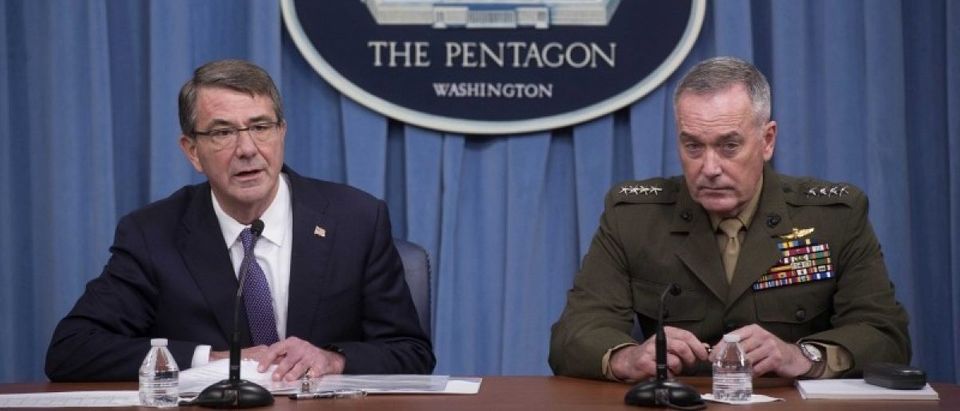Nearly six in 10 Americans say the United States should “deal with its own problems and let other countries deal with their own problems as best they can,” found a recent Pew poll, but Washington seems determined to do exactly the opposite.
There are already more than 150,000 American troops stationed outside U.S. borders, hosted on some 800 bases in about 70 countries — not counting unknown thousands more in Iraq, Syria, Afghanistan, and other war zones like Yemen. And still Congress and the Obama Administration are preparing to deploy even more American soldiers abroad, apparently to all corners of the earth.
If that sounds like an exaggeration, I assure you it is not.
Right now, our government is mulling an expansion of military presence in the Middle East, Asia Pacific, Africa, and Eastern Europe—literally almost every continent on earth besides our own.
Of course, Washington hardly markets its endless plans for intervention as a package deal. We are never presented with some grand military strategy which would be easy to examine for its practicality and wisdom (or, more likely, lack thereof). Instead, we hear about these projects piecemeal: a hundred troops here, a thousand there, another hundred to some place you’ve never heard of.
And while a single deployment may sound quite innocuous, it all adds up to a precarious situation indeed. Attempting to police nearly every region on the planet leaves our military stretched thin and our treasury overdrawn by trillions. Rather than dealing with our own problems as most Americans prefer, we have taken on the troubles of the world, making in the process a promise we cannot afford to keep.
That is not to suggest that individual military interventions can’t be damaging to American interests all on their own. Consider Eastern Europe, where the Pentagon, working with NATO, is planning to deploy another 4,500 troops plus weaponry spending including “investments in space systems, cyber weapons, and ballistic missile defense.” The goal is to counter Russian military strength, and Gen. Joseph Dunford, chairman of the Joint Chiefs of Staff, has indicated that the current boost of American involvement in this area is only the beginning.
The immediate justification for sending additional Americans to Europe is that the “Russians have been doing a lot of snap exercises right up against [their border with Poland and the Baltic states] with a lot of troops,” said Deputy Secretary of Defense Robert Work, deeming the exercises “provocative.” “But,” as Pat Buchanan shrewdly asks at The American Conservative, “how are Russian troops deploying inside Russia ‘provocative,’ while U.S. troops on Russia’s front porch are not?”
Unsurprisingly, that is precisely Russia’s view of the situation. “This would be a very dangerous build-up of armed forces pretty close to our borders,” said Andrei Kelin, a senior Russian Foreign Ministry official. “I am afraid this would require certain retaliatory measures, which the Russian Defense Ministry is already talking about.”
It isn’t difficult to imagine how this escalation could continue, with terrible unintended results: The U.S. sees Russian soldiers doing exercises in Russia, so we send more troops. Russia sees more U.S. troops arrive, so they do more exercises—and on and on ad naseum until we find ourselves locked in a march toward imprudent, expensive war with no tangible cause beyond mutual military build-up.
But such a war is all hypothetical at this stage, and it can remain that way if only Washington will listen to Americans’ demand that we stop trying to fix everyone else’s problems on our dime. The fact that we can send more troops to counter Russia doesn’t mean we should; it is precisely such illogic that has our military strewn aimlessly around the globe today.
Russian military exercises may well be a threat to smaller Eastern European nations, but—like the threats our government unjustifiably believes it can fix in the Middle East, Asia Pacific, and Africa, too—that does not mean American escalation is the prudent solution. Such a knee-jerk reaction, straight out of the typical Washington elite playbook, would be a costly mistake in terms of treasure, and maybe blood, too. It would also be an outright rejection of the will of the American people, who after years of unproductive interventions are ready for a break from playing world police.
Bonnie Kristian is a fellow at Defense Priorities. She is a contributing writer at The Week and a columnist at Rare, and her writing has also appeared at Time Magazine, Relevant Magazine and The American Conservative, among other outlets.


